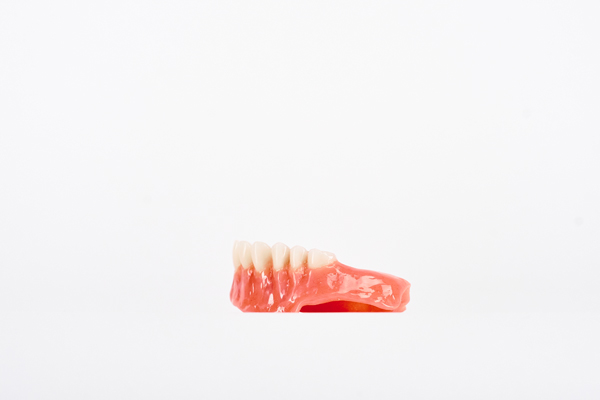Dentures 101: What You Can Eat With Dentures

Dentures restore chewing power and an aesthetically pleasing smile, but the right food choices help everything feel natural. During the first few days, soft textures build comfort while you can learn new habits. With simple techniques and smart options, eating with dentures becomes easy and enjoyable. Here are some examples of what denture wearers can eat, modifications to make, and tips for keeping meals stress-free.
Start soft and build confidence
During the early adjustment period, choose foods that require minimal chewing. Scrambled eggs, yogurt, mashed potatoes, oatmeal, and tender fish help the gums adapt without causing soreness. Cut everything into small pieces and chew on both sides simultaneously to keep your dentures stable. Sip water between bites to keep the mouth moist and improve taste and comfort.
Everyday foods that work well
A balanced menu supports energy and oral health. Many everyday foods fit well once patients gain comfort and follow simple preparation tips. Try these ideas:
- Protein: Eggs, soft chicken or turkey, tofu, flaky fish, slow-cooked beans
- Grains: Oatmeal, pasta, rice, soft bread, tortillas, pancakes
- Fruits and vegetables: Ripe bananas, berries without seeds, avocados, steamed carrots, squash
- Dairy and fats: Yogurt, cottage cheese, soft cheese, nut butters thinned with water
Season and cook foods until tender. Choose sauces, broths, and gravies to add moisture, which helps dentures stay comfortable during longer meals.
Foods to approach with care
Some items can challenge new wearers. Patients may not need to avoid them forever, but small changes make them easier to enjoy.:
- Hard or sticky items: Nuts, popcorn kernels, hard pretzels, caramels, unchopped nuts, and sticky candies
- Crunchy produce: Raw apples, hard peaches or plums, and corn on the cob
- Tough meals: Steak or beef jerky
Patients can still enjoy most items on the list above, but they may need to make some adjustments. For example, finely chop nuts, eat softened pretzels, thinly slice apples, and allow peaches and plums to soften before consuming. Further, meats should be slow-cooked to encourage tenderness. If something feels risky, consider modifying the texture, adding moisture, or selecting an alternative that protects dentures from excessive force.
Techniques that make chewing easier
Good technique matters as much as food choice. Cut food into pea-sized bites and chew slowly on both sides to balance pressure. Use the tongue to guide food onto the teeth rather than biting with the front teeth, which can cause dentures to tip. Drink water frequently to support saliva production, especially if the patient is taking any medications that may cause dry mouth. Denture adhesive may add stability during long days or special events, but should only be used in the amount directed and cleaned off nightly.
Reducing discomfort
Healthy tissues make eating pleasant. Rinse dentures after meals, brush them daily with a soft brush and a non-abrasive cleaner, and soak them overnight if recommended by the dentist for removal during sleep. Gently massage the gums with a soft toothbrush to promote circulation. Report any rubbing, looseness, or mouth sores so adjustments can be made to improve the fit and comfort quickly.
Call us for more information
Eating with dentures becomes simple when you start with soft foods, modify challenging foods, and use steady chewing techniques. Moist, tender meals protect gums while you adapt, and small bites with balanced chewing keep the prosthesis stable. If you have further questions about dentures or what foods are suitable for eating, please contact Westwood Family Dentistry today.
Request an appointment here: https://www.docwestwood.com or call Westwood Family Dentistry at (619) 490-4445 for an appointment in our San Diego office.
Check out what others are saying about our dental services on Yelp: Dentures and Partial Dentures in San Diego, CA.
Related Posts
A kid-friendly dentist plays a meaningful role in improving poor oral hygiene in children by creating positive dental experiences and fostering healthy habits. Not only do they address the unique needs of young patients (like their increased risk for cavities), but they also help them build a strong foundation for lifelong oral health. A kid-friendly…
Children need good dental care in order to establish a strong foundation of oral health that they can carry into adulthood, and a kid friendly dentist is a great way to start them with a positive impression while simultaneously providing comprehensive, high-quality dental care. If it is time for your child to visit the dentist,…
A dental bridge replaces one or more missing teeth by anchoring a lifelike “pontic” to neighboring teeth or implants. This fixed option restores chewing, speech clarity, and a natural-looking smile line. By filling the space, a dental bridge helps prevent drifting teeth, changes in bite, and excessive wear on remaining enamel. The material, whether porcelain…
Wondering whether a kid friendly dentist makes a difference? Read on to learn more. The American Dental Association advises parents to take their children to a dentist before they reach one year of age. Starting with dental care early will help decrease the risk of cavities and allow the child to associate the visits with…
